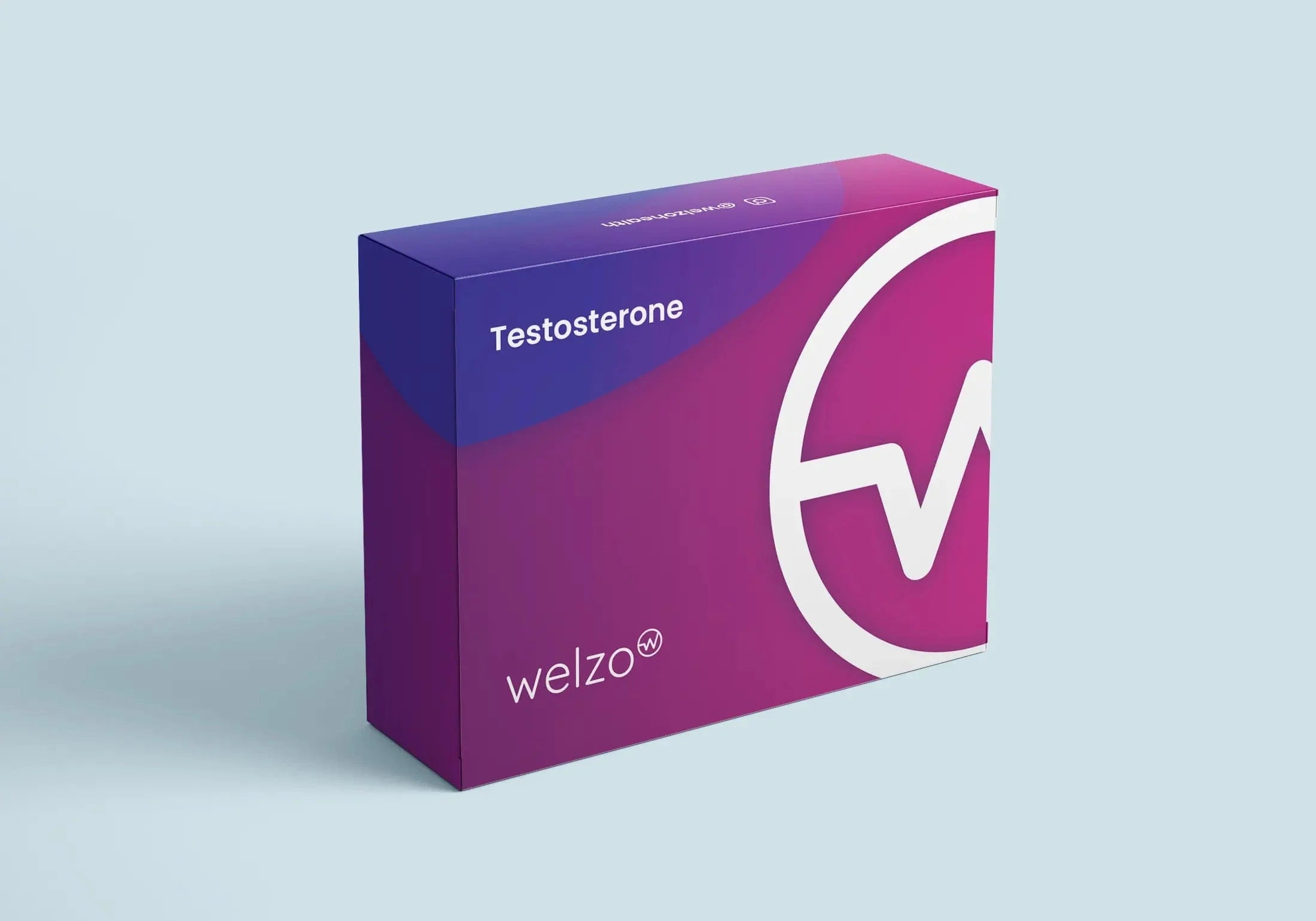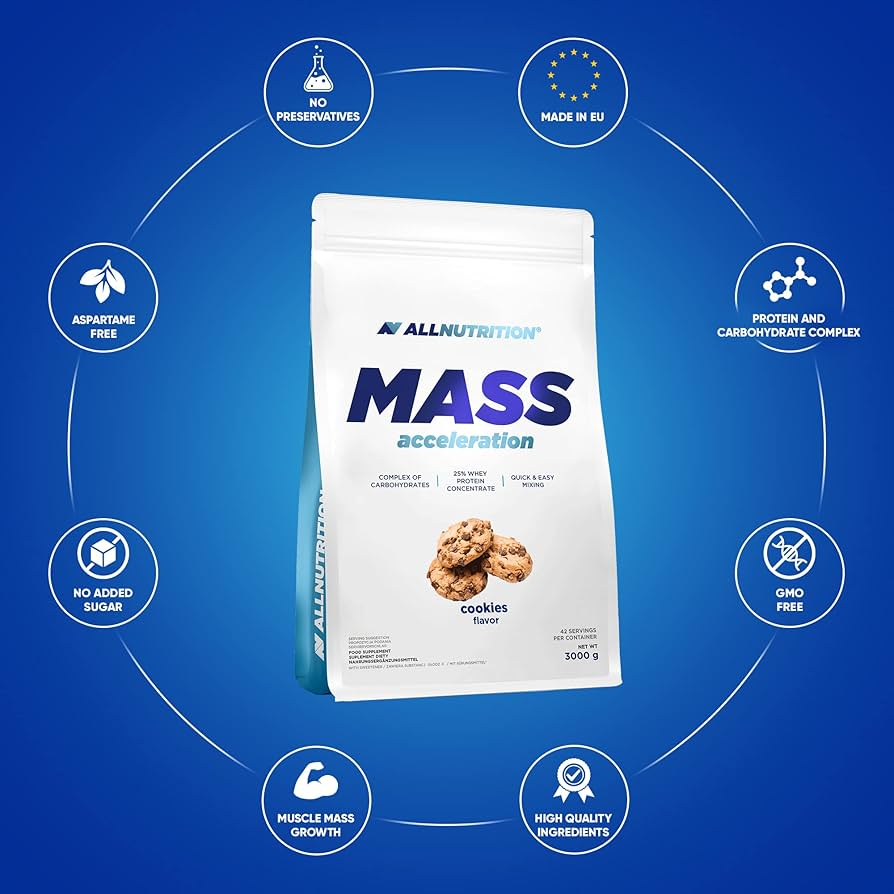
 Instagram
Instagram
Related products

Related products
How Is Testosterone Related to PCOS?
Elevated androgens and their role in PCOS
Elevated levels of androgens, including testosterone, are a hallmark of PCOS. This hormonal imbalance can disrupt the natural menstrual cycle, leading to ovulation issues and, subsequently, fertility challenges. The overproduction of testosterone can also contribute to the characteristic symptoms of PCOS such as acne, hair growth, and weight gain.
Mechanisms causing testosterone elevation in PCOS
Several mechanisms can lead to elevated testosterone levels in women with PCOS. These include insulin resistance, which can increase androgen production in the ovaries and decrease sex hormone-binding globulin, a protein that binds to testosterone. "Understanding the root causes of hormonal imbalances in PCOS is crucial for devising effective treatments", notes Dr. Sarah Mitchell.
What Is PCOS?
Definition and prevalence
Polycystic Ovary Syndrome (PCOS) is one of the most prevalent hormonal endocrine disorders among women of reproductive age. It is estimated that nearly 1 in 10 women in the UK experience PCOS, which equates to approximately 3 million individuals. Characterised by an overproduction of androgens or male hormones, PCOS can lead to a myriad of health issues if not managed properly. "PCOS not only affects a woman's reproductive health, but it also has metabolic implications," says Dr. Fiona Andrews, a leading gynaecologist in the UK.
Symptoms and diagnosis
Identifying PCOS can sometimes be challenging due to its wide range of symptoms. The most common symptoms include irregular menstrual cycles, excessive hair growth (hirsutism), acne, and obesity. Furthermore, many women with PCOS may experience difficulty in conceiving. Diagnosis typically involves assessing symptoms, blood tests to measure hormone levels, and an ultrasound to look at the ovaries. "Early detection and treatment can help manage symptoms and reduce associated health risks," notes Dr. Caroline Harris, a specialist in endocrine disorders.

Buy Testosterone Blood test online here.
Why Is Testosterone Important in the Body?
Role in male and female biology
Testosterone plays a significant role in both male and female physiology. Although predominantly recognised as a male hormone, women's bodies also produce testosterone, albeit in smaller quantities. In men, it’s crucial for the development of male reproductive tissues and the emergence of secondary male characteristics. In women, testosterone is pivotal for bone strength, mood regulation, and the creation of oestrogen.
Impact on muscle mass, mood, energy, and other physiological factors
Testosterone influences several physiological factors, including muscle mass, mood, and energy levels. It aids in protein synthesis, promoting muscle growth and strength. Additionally, it's instrumental in regulating mood and can have a direct influence on energy levels. Reduced testosterone levels in either gender can lead to symptoms such as fatigue, mood swings, and decreased muscle mass. "Ensuring optimal testosterone levels is essential for overall health and well-being," suggests Dr. Nicholas Stewart, a hormone specialist.
Common Queries from the Public: Connecting Testosterone and PCOS
Is high testosterone a definite symptom of PCOS?
High testosterone is a common symptom of PCOS, but it's not definitive. Some women with PCOS may have normal testosterone levels. Thus, a holistic approach to diagnosis, considering all potential symptoms and clinical tests, is necessary.Can PCOS be diagnosed solely based on testosterone levels?
No, PCOS cannot be diagnosed based solely on testosterone levels. While elevated testosterone can be an indicator, a comprehensive evaluation considering symptoms, ultrasound findings, and other hormone levels is essential, says Dr. Emily Clarke, a reproductive endocrinologist.
How does elevated testosterone contribute to PCOS symptoms?
Elevated testosterone can lead to several PCOS symptoms like hirsutism, acne, menstrual irregularities, and ovulation issues. Its influence on follicle development can interfere with regular ovulation, leading to fertility challenges.
The Physical Manifestations: How Elevated Testosterone Affects Women with PCOS
Effects on the skin: Acne, oiliness, and hair growth patterns
Elevated testosterone levels can lead to increased oil production in the skin, contributing to acne outbreaks. Moreover, higher testosterone can result in unwanted hair growth patterns, particularly in areas like the face, chest, and back. "Managing testosterone levels can help alleviate these skin concerns," advises Dr. Rebecca Green, a dermatologist specialising in hormonal skin conditions.
Impact on menstrual cycles
One of the common symptoms of PCOS is menstrual irregularities. Elevated testosterone can interfere with the ovulation process, leading to irregular, prolonged, or even absent menstrual cycles.
Influence on fertility and ovulation
Increased testosterone levels can hinder the natural ovulation process, posing challenges for women trying to conceive. Addressing and managing these elevated levels, often through lifestyle changes and medications, can improve ovulatory functions and increase chances of conception, says Dr. Laura Thompson, a fertility specialist.
Emotional and Psychological Impacts
Mood changes and mood disorders
Women with PCOS often experience profound mood changes, swinging from feelings of sadness to anxiety. Elevated testosterone levels in PCOS have been associated with an increased risk of mood disorders. “There’s an undeniable connection between hormonal imbalances and emotional health,” states Dr. Helena James, a renowned psychiatrist specialising in hormone-related mood disorders in the UK.
Self-esteem and body image concerns due to physical manifestations
Physical symptoms like acne, weight gain, and unwanted hair growth can have a substantial impact on a woman’s self-esteem and body image. The emotional toll of dealing with these manifestations daily often leads to feelings of insecurity and social withdrawal. “The link between physical manifestations of PCOS and psychological well-being cannot be underestimated”, explains Dr. Naomi Field, a psychologist with expertise in body image.
The link between testosterone, PCOS, and anxiety or depression
Emerging research suggests that women with PCOS and elevated testosterone levels may be at a heightened risk for anxiety and depression. The hormonal imbalance may affect neurotransmitter activity, potentially leading to mood disturbances. "Understanding this connection can pave the way for better mental health support for these women," shares Dr. Samuel Roberts, a leading endocrinologist.
Treatment Options: Balancing Testosterone Levels in PCOS
Lifestyle changes: Diet, exercise, and stress management
Making changes in one’s lifestyle is foundational in managing PCOS and balancing testosterone. A balanced diet, regular exercise, and managing stress effectively can potentially reduce testosterone levels. Dietitians recommend a low GI diet to counter insulin resistance, often seen in PCOS patients. “Regular physical activity and mindfulness practices can also play a crucial role in hormonal balance,” suggests Dr. Lara Gibson, a wellness expert.
Medications: Birth control pills, anti-androgens, and insulin-sensitizing agents
Medical treatments for PCOS aim to regulate menstrual cycles, manage symptoms, and address elevated testosterone. Birth control pills can help balance hormone levels, while anti-androgens like Spironolactone can counteract the effects of elevated testosterone. Metformin, an insulin-sensitizing agent, can also be beneficial for many, says Dr. Jennifer Lane, a leading gynaecologist.
Surgical options and their potential impacts on testosterone
In some cases, surgical interventions, such as ovarian drilling, may be considered. This procedure involves making small holes in the ovary's surface to restore regular ovulation. Dr. Zoe Smith, a surgical specialist, clarifies, “While not a first-line treatment, it can help lower testosterone levels in some women.”
Case Studies: Testosterone and PCOS
Jane's struggle with hirsutism and her path to balance
Jane, a 28-year-old from Birmingham, struggled with severe hirsutism due to elevated testosterone. After trying various treatments, a combination of lifestyle changes and anti-androgen medications helped her manage her symptoms. Jane’s journey underlines the importance of personalised treatment plans.
Sarah's fertility challenges and the role of testosterone
Sarah, a 32-year-old from London, grappled with infertility associated with her PCOS. Her journey of understanding the link between testosterone and ovulation led her to seek targeted treatments. With the help of fertility experts and a tailored approach, Sarah was eventually able to conceive.
Prevention and Management: Ways to Keep Testosterone in Check
Importance of early diagnosis and management
An early diagnosis of PCOS can be pivotal. It allows for prompt intervention, potentially preventing complications and more severe symptoms. “Early diagnosis means early management, which can make all the difference”, says Dr. Alan Bridges, an endocrine specialist.
Monitoring testosterone levels: Frequency, methods, and interpretation
Regular monitoring of testosterone levels is crucial for women with PCOS. Using blood tests, clinicians can track hormone levels and adjust treatments as needed. The interpretation of these results, in the context of other symptoms, is vital for holistic management.
Nutritional and herbal supplements: What works and what doesn't?
Some herbal supplements, such as spearmint tea and inositol, have shown promise in reducing testosterone levels. However, the efficacy of many supplements remains unproven. "Always consult with a healthcare professional before starting any supplement," advises Dr. Lucy Fielding, a nutritionist.
Future Research Directions: What We Still Need to Learn
Gaps in current understanding
While considerable advancements have been made in understanding PCOS, many aspects, especially concerning the relationship between testosterone and emotional well-being, remain underexplored. More comprehensive studies are needed to uncover the full range of PCOS implications.
Upcoming clinical trials and studies
Several ongoing clinical trials aim to delve deeper into the hormonal dynamics of PCOS. Prominent institutions in the UK, such as the University of Oxford and University of Cambridge, are at the forefront of this research, aiming to offer new insights and treatment pathways.
Potential breakthroughs in treatment and management
With relentless research and increased awareness, potential breakthroughs in PCOS treatment loom on the horizon. From novel medications to innovative therapeutic techniques, the future looks promising for women grappling with this condition.
Real-Life Experiences with Testosterone and PCOS
Personal narratives on managing symptoms
For many, living with PCOS means navigating a myriad of symptoms that can alter one’s daily life. Clara from Manchester shares her journey: "Every day was a battle, from tackling unexpected acne flare-ups to managing my irregular menstrual cycle. Over time, I've developed a routine, learning to anticipate and address symptoms before they become too disruptive."
Strategies for emotional and physical well-being
Maintaining emotional equilibrium while grappling with the physical manifestations of PCOS can be challenging. Rachel, a 35-year-old from Leeds, emphasizes the importance of self-care. “Yoga, meditation, and regular counselling have been instrumental in keeping me grounded. It’s also essential to find a supportive community who understands your journey,” she reflects.
Tips for navigating daily life with elevated testosterone and PCOS
Lifestyle adjustments can play a significant role in managing PCOS. Emily, who’s been living with PCOS for a decade, suggests, "Sticking to a balanced diet, maintaining a consistent exercise routine, and keeping stress levels in check are foundational. Additionally, tracking your symptoms can help anticipate potential flare-ups and make necessary adjustments."
Frequently Asked Questions
How can I lower my testosterone levels naturally?
Natural interventions, such as a balanced diet, regular exercise, and certain herbal supplements like spearmint tea, can potentially help reduce testosterone levels. However, it’s imperative to consult a healthcare professional before making any significant changes.
Are there any side effects to testosterone-lowering treatments for PCOS?
While medications like birth control pills and anti-androgens can be effective, they might also come with side effects such as weight gain, mood swings, or fatigue. It's essential to discuss potential risks and benefits with your doctor.
What are the long-term health implications of elevated testosterone in PCOS?
Elevated testosterone in PCOS is linked to symptoms like acne, hair growth, and menstrual irregularities. Over the long term, it may also increase the risk for conditions like type 2 diabetes, heart disease, and endometrial cancer.
Is there a cure for PCOS or is it a lifelong condition?
Currently, there’s no cure for PCOS. However, with the right management strategies, many symptoms can be controlled, allowing individuals to lead fulfilling lives.































 Rated Excellent by 26,523+ Reviews
Rated Excellent by 26,523+ Reviews